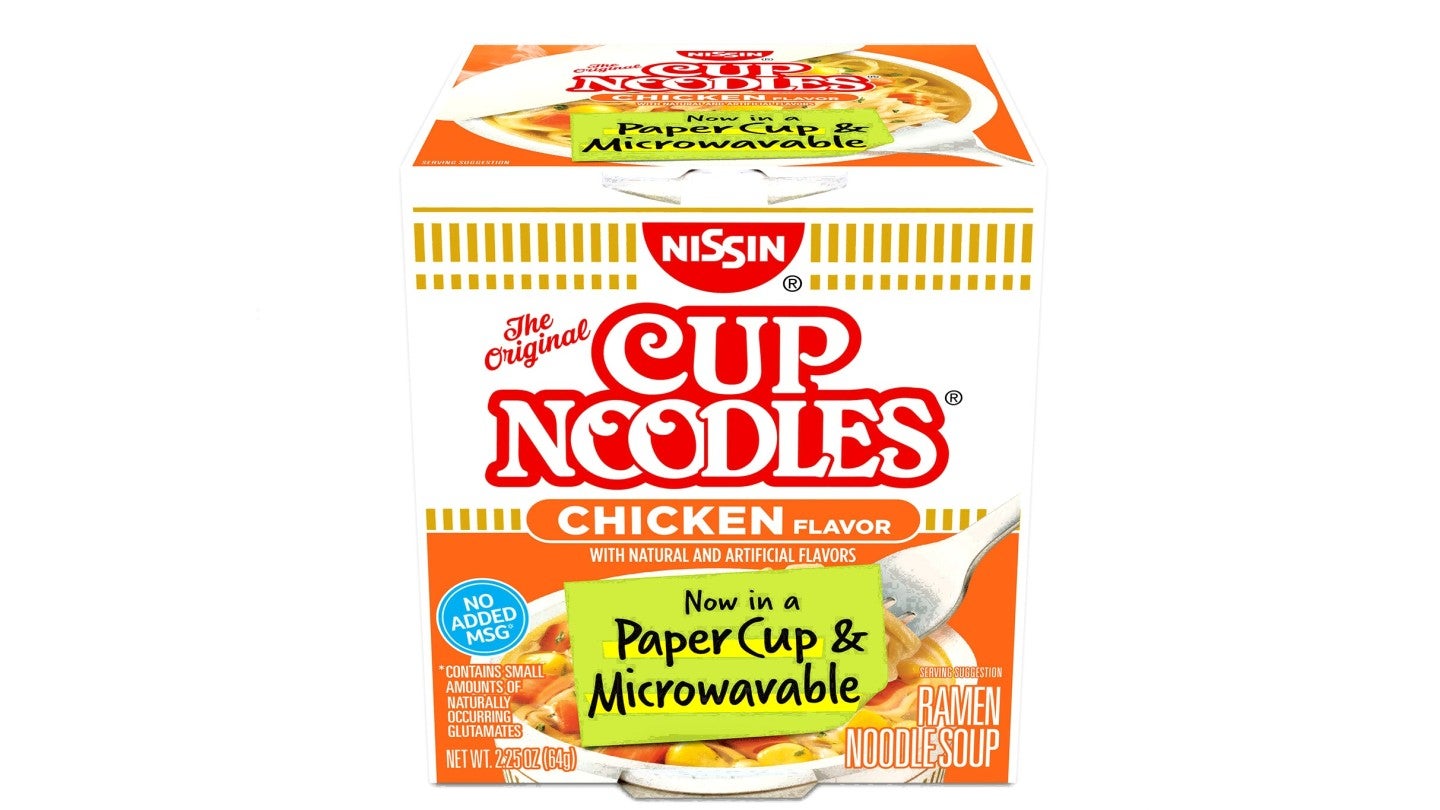
Food holdings company Nissin Foods USA has announced its plans to launch a new paper cup packaging design for its Cup Noodles product range.
Scheduled to launch by early next year, the paper cup will serve as a more sustainable alternative to replace the range’s existing polystyrene cup.
The paper packaging will be made using 40% recycled fibre and will not require any additional plastic wrap to function.
The sleeves on the Cup Noodles’ packaging will be made using 100% recycled paper.
The revamped on-the-go cup packaging will be microwavable and is therefore set to significantly minimise cooking time, allowing consumers to conveniently cook their instant ramen noodles by heating them for two minutes and 15 seconds.
The sustainable packaging is being introduced for all Cup Noodles flavours.
Nissin president and CEO Michael Price said: “Since its invention more than 50 years ago, Cup Noodles has become a cultural mainstay and a staple in households around the world.
“And while Cup Noodles will continue to have that same satisfying taste and iconic look, we continue to find ways to evolve the brand to support the current needs of our consumers, the environment and the world.
“This updated packaging and the new paper cup marks an important milestone for Cup Noodles and a key step in our environmental commitment.”
Nissin further describes this latest move to adopt new packaging as a ‘historic change’ for the brand since its launch in the US in 1973.
This effort to transition to sustainable paper packaging is also in line with the food holdings’ EARTH FOOD CHALLENGE 2030 target to reduce its carbon dioxide emissions by up to 30% by 2030 and achieve carbon neutrality by 2050.



